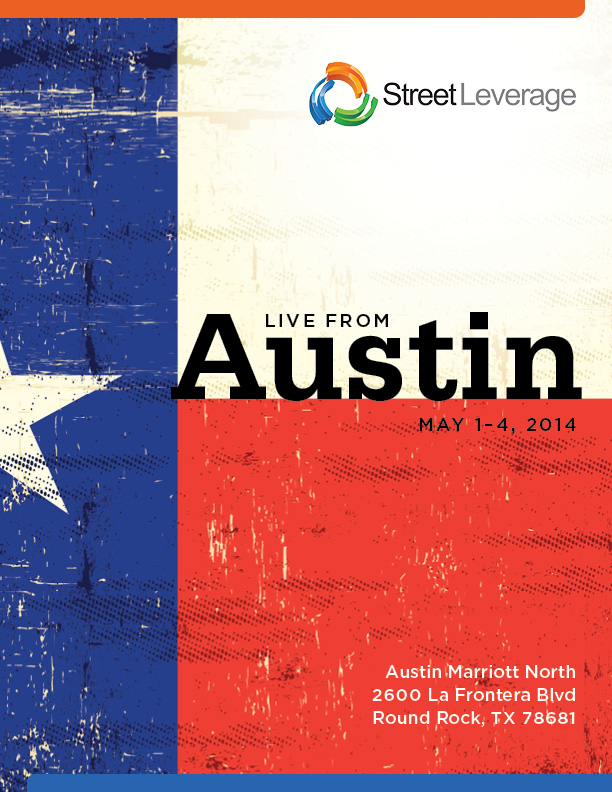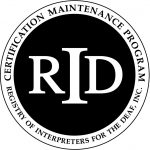
Brandon Arthur interviews Laurie Nash, Vice Chair of the Interpreters with Deaf Parents (IDP) Member Section of the Registry of Interpreters for the Deaf (RID), on the stunning retraction of the referendum, that if passed, would have established a designated position on the RID Board of Directors for an IDP Member at Large position.
Highlights
“Many of us felt that the passage of this referendum was important in order to help RID reconnect with the deaf community and the values that were the foundation of the establishment of RID 50 years ago.”
“I am here to talk about IDP but I do want to acknowledge that other members feel disenfranchised by RID as well. I cannot speak for them but they do have similar feelings of not being involved in the decision making process. IDP believed that if we had a position on the board then that would guarantee a place at the decision making table.”
“The president somehow misunderstood that a 2/3 majority of the vote was required as opposed to the a simple majority she used to determine the initial passage of the referendum.”
“We were told this late on Wednesday night and the announcement from the board was made Thursday. Obviously the RID board had already prepared their announcement and video and were ready to announce this to the membership.”
“I think for many IDP members there is a desire for our organization and our members to recognize that indeed many interpreters with deaf parents bring something unique to our field.”
“I think it is important to emphasize that respectful dialogue is the key to moving forward. I encourage all members of RID be mindful of respecting each other as we move forward.”
Interview Transcript
Brandon: Hello everyone. I am Brandon Arthur from StreetLeverage.com. I am here with Laurie Nash, Vice-Chair of RID’s Interpreters with Deaf Parents Member Section. Welcome Laurie.
Laurie: Hello. Thank you for hosting this dialogue and inviting me.
Brandon: We are here to discuss RID’s announcement from last week about Motion E, the referendum that if passed, would have established a designated position on the RID board of directors for an IDP member at large. With the announcement that the referendum did not pass, I imagine there to be a lot of emotional responses to the announcement. Before we get into the retraction and the response from IDP, I’d like to back up a little bit to the beginning of March when RID announced the historic passage of a bylaws referendum that would establish an IDP seat on the Board of Directors. Can you share with us the feeling and thoughts that the IDP membership had when they learned of the referendum’s passage?
Laurie: Clearly many people, including IDP members, who supported this motion, felt that after a long time we would be getting some change in the direction of RID. Many of us felt that the passage of this referendum was important in order to help RID reconnect with the deaf community and the values that were the foundation of the establishment of RID 50 years ago. So yes, many people were relieved and happy. I know for myself, I felt that after many years, I now have a way to reconnect with RID. The passage of the referendum gave me faith in RID again. Learning that the referendum has passed in the first week of March left people feeling positive and pleased with all of the hard work done to get the referendum to vote
Brandon: You mention “having faith”’ in RID again. So, describe for us what the leadership of IDP, members of RID, and allies feel that this position represents for the future of RID.
Laurie: I believe that IDP members are not unique in feeling that they are underrepresented within RID. There are other groups of interpreters that feel the same way. We have all felt frustrated at some of the decisions made by the RID Board of Directors. These decisions show again a divergence from the communities we serve; their culture, their norms, their values. We have strayed away from that. So an IDP position on the board, we felt, would guarantee that along with the Deaf member at large that is already a part of the board, there would be a stronger connection to native language users and deaf-world natives and those board members would be involved with the decisions of RID from this point forward. Historically there have been a lot of frustrations among many groups. I am here to talk about IDP but I do want to acknowledge that other members feel disenfranchised by RID as well. I cannot speak for them but they do have similar feelings of not being involved in the decision making process. IDP believed that if we had a position on the board then that would guarantee a place at the decision making table. This motion was initially made taking into consideration the current structure of RID. Many people have brought up different ideas for a restructuring of the board and changing the composition of the board. I think that re-evaluating the board is a good idea but that’s not our current reality. The current board composition is what was in mind when the motion was made. Let me clarify, the motion came out of the 2010 Region II conference. The motion carried and was then brought to the floor of the national conference in 2011. A lot of people were involved in the discussions to ensure that the position would work within the current board structure. Members were both in support and opposition for various reasons but for the collective IDP membership was in support of this motion and the concept behind it: that our voice was missing from the board. Our current board has 3 people who are interpreters with deaf parents. 2 are deaf and 1 is hearing but that was not always the case. For many, many years there were no native voices on the rid board.
Brandon: You have recognized that IDP is not the only group within RID who may not feel that they have access to the decision making tables of the organization and by extension our field. That being said, to be told that you had a place at the table and then for that place to be taken away with the retraction must create an environment where there is little to no trust in the leadership of RID. How did the news that the referendum did not pass actually unfold for IDP? How were you notified?
Laurie: Well the announcement came out last Thursday. On Wednesday at 9pm, the 4 members of the IDP executive council, participated in a video conference call with President Prudhom and many members of the board of directors. On that call, we were told that there was a mistake made in determining the required number of votes needed to pass the referendum. The president somehow misunderstood that a 2/3 majority of the vote was required as opposed to the a simple majority she used to determine the initial passage of the referendum. Now you should know that during the drafting of this referendum it was clearly understood by everyone involved that a 2/3 majority vote was needed to pass. This referendum was a change in our bylaws and required a higher standard than other referendums. So, she seemingly made a mistake and erroneously informed Shane Feldman, the Executive Director of RID, and others that the referendum passed. We were told this late on Wednesday night and the announcement from the board was made Thursday. Obviously the RID board had already prepared their announcement and video and were ready to announce this to the membership. Hearing this news, we were floored and were at a loss on how were we to respond and we wondered how our members would respond to this announcement. We asked President Prudhom for some time to organize and coordinate a respond. They gave us a little time but by 3pm on Thursday, the announcement went out to the general membership. As a result, the IDP council was unable to prepare a coordinated response right away. Unfortunately RID went ahead with their announcement.
Brandon: So what would IDP like to have seen done differently in a situation like this in the future. If we as an organization have learned anything from this, it won’t happen again but if you could advise the board on how better to handle something like this, what would you ask them to do?
Laurie: Well…when we learned that the referendum did not in fact pass we were of course disappointed. Many people worked very hard on this referendum, however; it was compounded by the lack of checks and balances and the realization that RID made a mistake. We were left wondering, How could something like this happen? Is it possible that only one person is counting the vote? It was very hard to understand how this could have happened. We are collecting a vote on a referendum that impacts the bylaws of our organization. Not a business as usual item. These are the guiding rules of our organization, our bylaws. We were disappointed that the referendum did not pass but we could move on from there. Our disappointment was further exacerbated by this mishandling of the vote and our experience that this was also one more example in a series of blunders the membership has experienced from the RID board. We believe that the IDP membership should have received a personal apology. The president of RID made a general public apology to the membership; however, this motion held great significance to many people connected to IDP. This general apology did not recognize the significance of the referendum and did not recognize that many members had very strong connections to it. This fact seemed to be overlooked by the board of directors and I think that is just another example of perhaps a cultural disconnect from the membership. RID does have members of diverse backgrounds. President Prudhom’s manner of apology and announcement did not give enough attention to the significance of this referendum to members of IDP.
Brandon: Thank you. What do you hope the membership, the RID board of directors, and even the national office staff can learn from this situation?
Laurie: I wish they didn’t have to learn anything at all. I wish this didn’t have to be a learning experience for them to begin with. However, I think all members of RID, after seeing this; can agree that mistakes are consistently made within RID. This is not an isolated instance. I am not sure what kind of oversight may be needed and I am unsure how the board functions. For vote counting, do they work together? Who is responsible for vote collecting? How does it work when voting happens through the internet? There need to be safeguards in place to make sure this kind of thing ever happens. With a mistake of this magnitude, we all have to question how it came to be. I believe RID members have a right to know how this kind of mistake happened. It certainly shouldn’t have happened on such a large issue as the bylaws and leads us to wonder if this kind of mistake is allowed to happen, then what other mistakes are happening? I don’t want to get off the point here but we do need to wonder what is going on. I think the mistakes issue is not simply an IDP complaint. It is a systemic organizational and leadership problem that all of us have to be very concerned about.
Brandon: Clearly, you have said that representation at the decision making tables of our field is important to interpreters with deaf parents and other underserved groups. In considering the future of RID and perhaps the perspective of people seeing this interview, people who will see the passion that IDP has about this issue, what do you want them to know about your collective desire for more representation and collective diversity at the decision making tables of RID?
Laurie: I think for many IDP members there is a desire for our organization and our members to recognize that indeed many interpreters with deaf parents bring something unique to our field. We have a variety of deaf-world experiences that many if not most of our members within RID do not have. Each interpreter brings their unique set of life experiences to their work. The experiences of an someone who grew up in a deaf parented home instills the values and norms of the community in their work. Interpreters with deaf parents possess the ability to broker meaning in culturally appropriate ways. That is the value we need to have on the board. I think many of our members historically have felt those inherent skills have been negated in a systematic way within RID. On an individual level, interpreters with deaf parents have certainly felt valued by many colleagues but we feel this must be a integral part of the board. During the national conference in Atlanta in 2011, Dennis Cokely commented on the logo for the conference. The logo was a tree. On the stage at the business meeting, he pointed out that the tree was missing its roots. The roots have been missing for a very long time and It’s not just interpreters with deaf parents who feel this way. There are many people in our field, including leaders in our field, who believe that interpreters with deaf parents have something unique to offer. We recognize a unique skill at play but we believe that recognition of this skill needs to be an integral part of our national organization, RID. There may be talk about restructuring and changing the composition of the board. I think that may be a great idea but let’s work together to make it happen if the membership agrees that to be our goal. For now, the board structure is the way it is. We can work toward improvements but again with the kind of mistake that took place we have slipped back and the membership has lost faith once again.
Brandon: If you had the opportunity to send a message to the general membership and to IDP members what would you say about the desire to again reconnect with our roots?
Laurie: To the general membership, I think it is important for us to consider why we do what we do. If we claim to value the deaf community and value their norms and culture, if that indeed is what we are saying, then great. Let’s move on and do it in our actions and in our words. Live it. Show it. Prove it. And if not, then if people do not want to achieve that then why are we here talking about this? Why does RID even exist? We need to figure out our organizational purpose, values and goals. What we do is not just collecting a paycheck. For many of us our profession is not simply a job. Unfortunately for some it appears that they are here only to collect a paycheck and there is no authentic connection to the deaf community and certainly no investment. For those of us vested, it feels exploitative of those interpreters. We really need to figure out why we do the work we do. To IDP members, I think it is important to say that your hard work bringing this referendum forward and the progress that we made was successful in many ways. The discussion we are having now is also housed within a broader context. We have all had our individual discussions and experiences with each other and with our colleagues. We have also had our experiences discounted and shunned. It is time to move forward. We are now having a bigger discussion and this process is necessary in order for us to recover from the last 50 years.
Brandon: I really appreciate you being here with me today to lay out the issues. I hope this dialogue will help create some perspective for the people who are seeing all of the thoughts, emotion, and dissention on this issue. At the end of the day, I hope that as an organization we can keep our eyes on the mission of service. If we can dialogue with respect then we can move forward. Thank you for taking the time to be here today.
Laurie: I am happy to be here but I do want to add something if you don’t mind. I think it is important to emphasize that respectful dialogue is the key to moving forward. I encourage all members of RID be mindful of respecting each other as we move forward. Unfortunately, some public comments have been made that were not respectful and for many were insulting. If we truly want our field and our organization to recover we have to maintain a respectful dialogue. I hope we can all remember the person receiving the message when posting comments via any open forum. Keep it honest and respectful.
Brandon: StretLeverage.com we try to create an environment where people feel comfortable expressing themselves so I can appreciate you bringing respect up. Laurie, thank you for your time. I appreciate you making time in your schedule for this discussion. I hope that this dialogue will help others who have wondered about the debate and differing opinions surrounding this referendum so that we can all move forward to a successful future. Thanks again.
Laurie: Thank you.





 March 10, 2013:
March 10, 2013:

